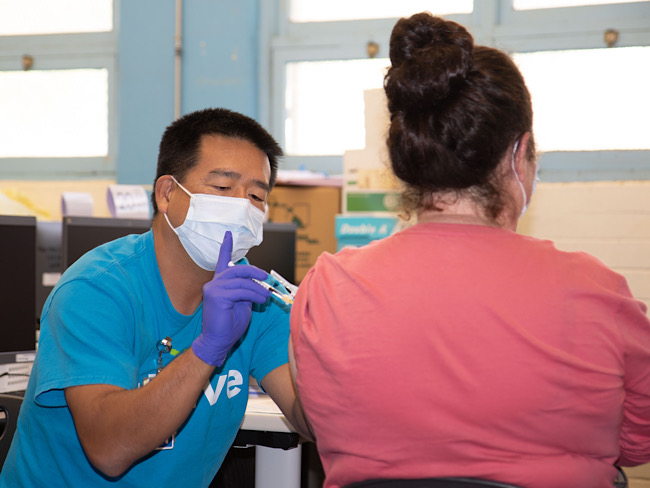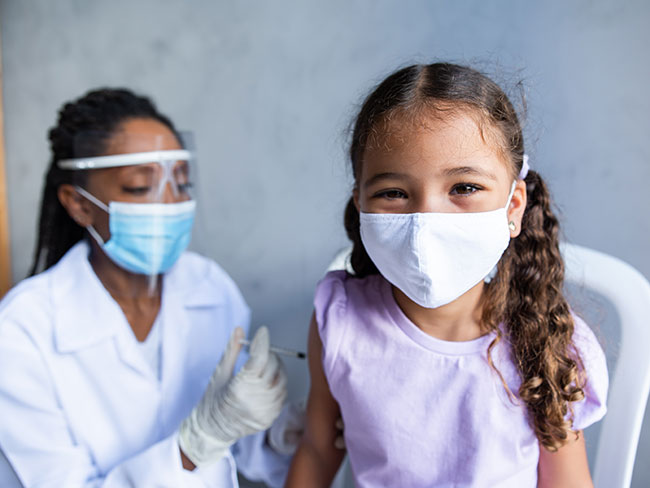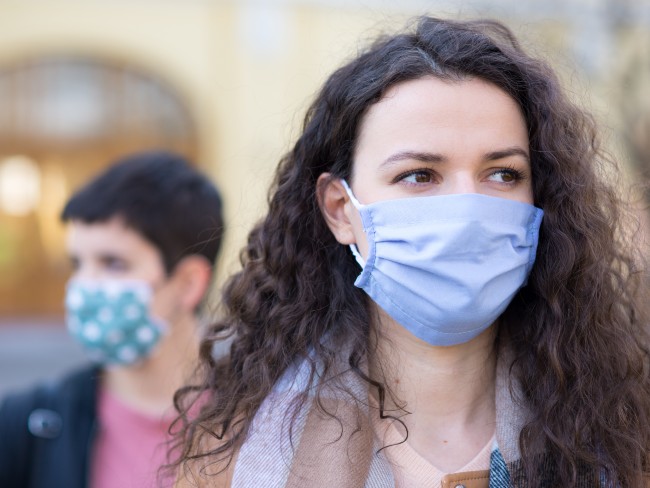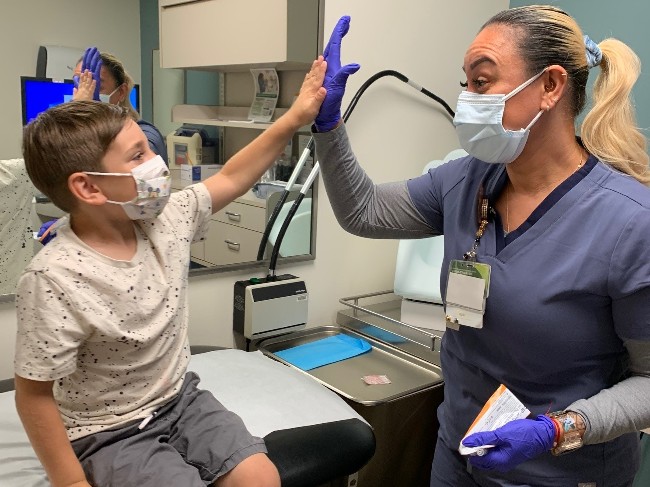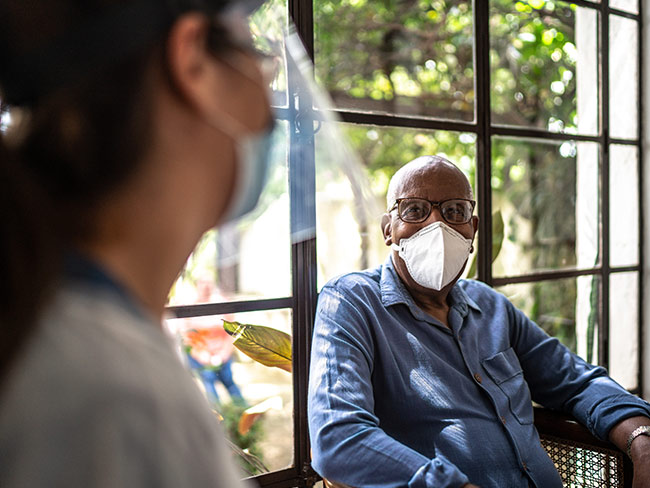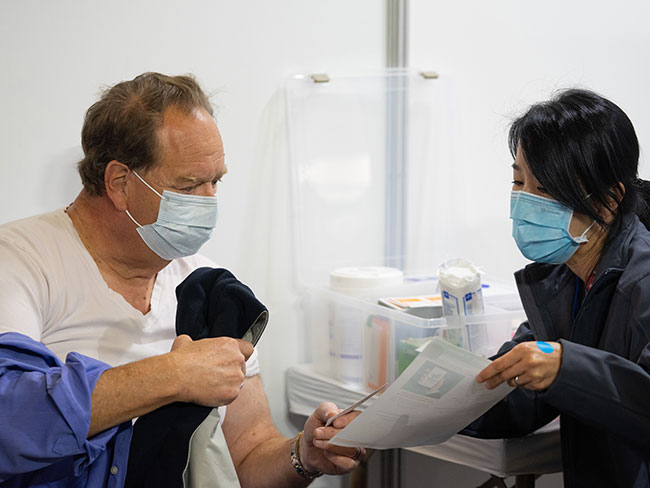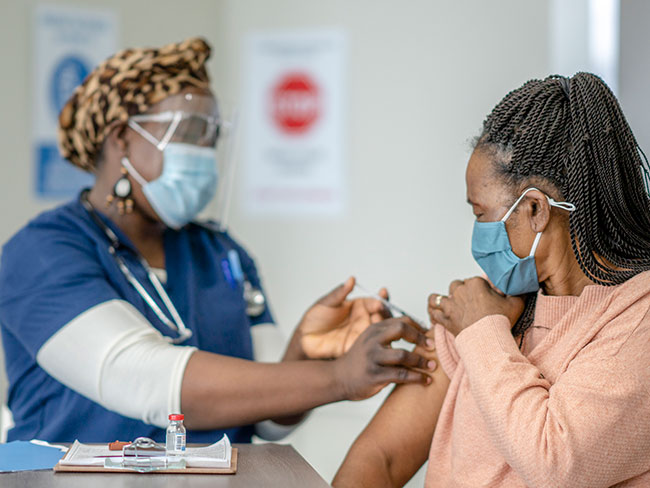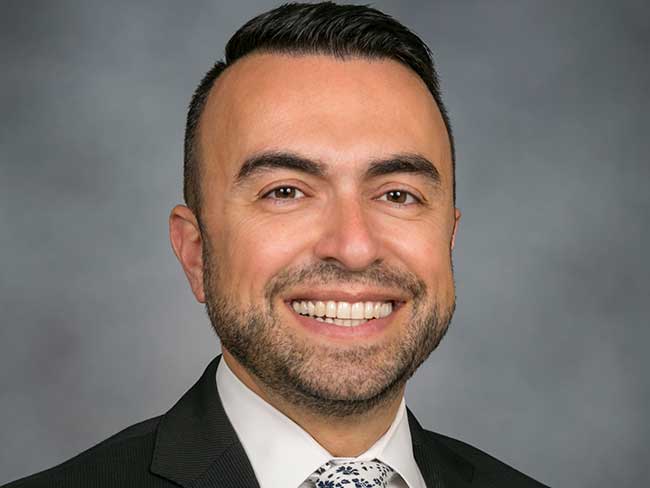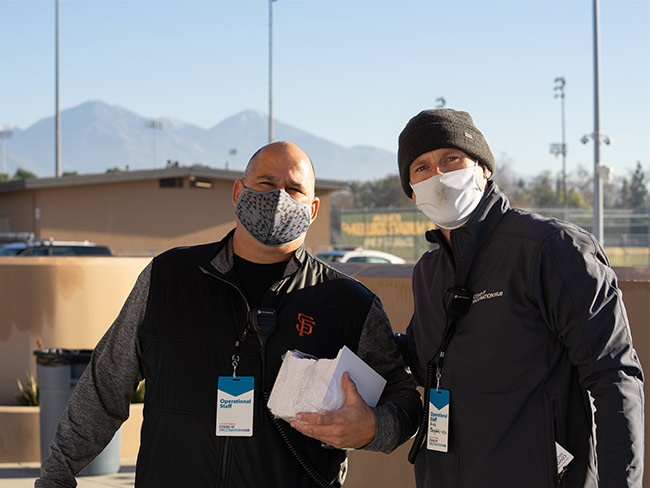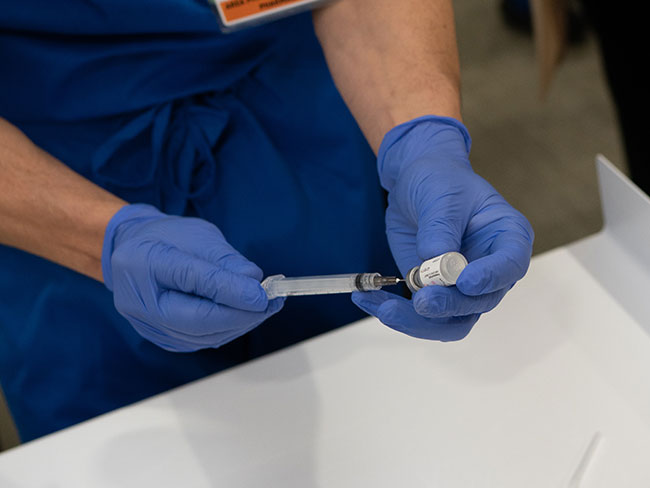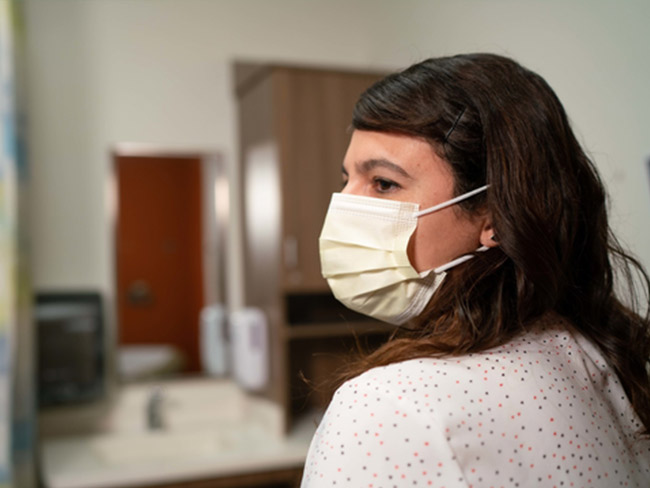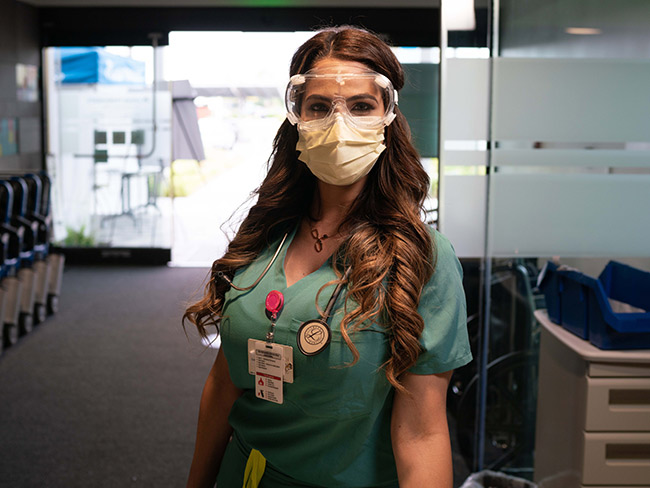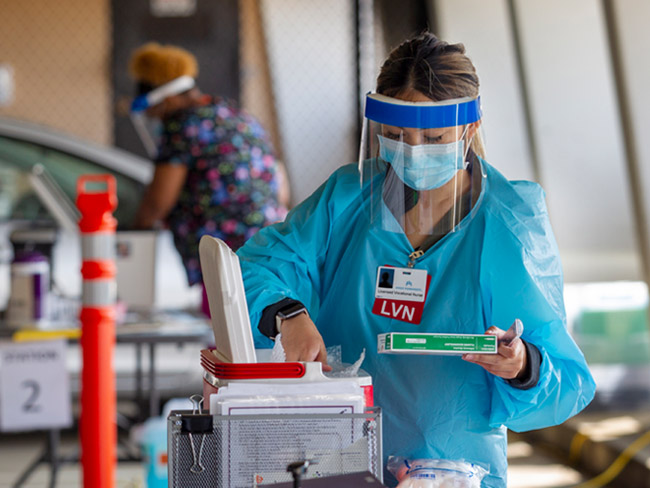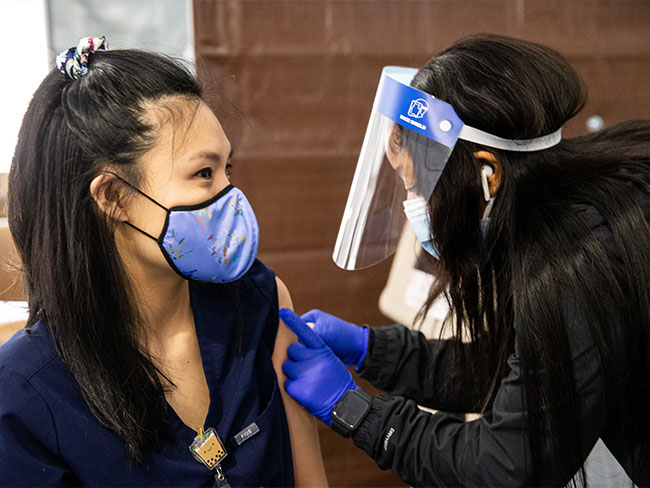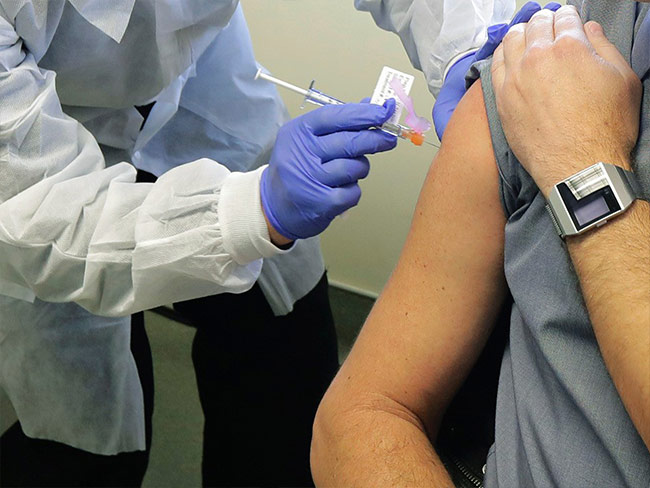Flu protection for all that is you
Getting vaccinated is a safe and effective way to avoid getting sick.
An annual flu shot doesn’t just protect you — it also protects family and friends who are at risk of severe flu.
No one likes to get sick during flu season.
Kaiser Permanente doctors encourage you to protect yourself and others. Get your annual flu shot as soon as possible.
No-cost flu shots for members
Flu shots are safe and effective. They’re available to our members at no cost at Kaiser Permanente facilities.
If you’re a member, your options may include:
- Getting a flu shot during an existing appointment
- Scheduling an appointment to get a flu shot
- Walking up to a flu shot clinic
- Driving up to get vaccinated without leaving your car (available in certain locations)
Visit kp.org/flu to find a convenient location near you.
“Getting a flu shot reduces your risk of flu illness by about half,” said Connie Park, MD, an infectious diseases specialist with Kaiser Permanente in Northern California. "If you’ve been vaccinated, even if you do get the flu, your illness is likely to be much less severe."
Who should get vaccinated — and when
Everyone 6 months and older should get a flu shot each year. The best time to get vaccinated is by the end of October. Getting vaccinated at any point during flu season will still provide important protection.
High-dose flu shots are available for people age 65 and older. People in this age group tend to get sickest from flu.
Flu, COVID-19, and RSV
The flu, COVID-19, and RSV (respiratory syncytial virus) are all likely to surge this fall.
We recommend you get an updated COVID-19 vaccination, as well as a flu shot, if it’s been 2 months since your last dose. At some Kaiser Permanente locations, our members may be able to get both vaccinations during the same visit. Visit kp.org/covidvaccine to learn more.
Adults age 60 and older are eligible for the RSV vaccine. Talk to your doctor to see if vaccination is right for you.
The Centers for Disease Control recommends one of 2 tools to protect babies from RSV: an RSV vaccine given to the mother between the 32nd and 36th week of pregnancy or an RSV immunization given to the baby.
Visit kp.org/rsv to learn more about RSV vaccination.
When you get the flu shot, you’re not just protecting yourself, you’re protecting ... everyone else in your community. Amy Duckro, DO
Never say never
Even if you’re young and healthy, and have never had the flu before, it’s important to get your flu shot.
“It’s possible for young, healthy people to have the flu with mild or no symptoms and to unknowingly spread it to people who are at risk of more serious problems,” said Amy Duckro, doctor of osteopathy and infectious disease specialist for Kaiser Permanente in Colorado.
The people most at risk for serious problems are:
- Children under 2
- Adults 65 and older
- People who are pregnant
- People who have an ongoing health condition such as asthma, diabetes, or heart disease
“When you get the flu shot, you’re not just protecting yourself,” Dr. Duckro continued, “you’re protecting your family, your friends, and everyone else in your community.”










